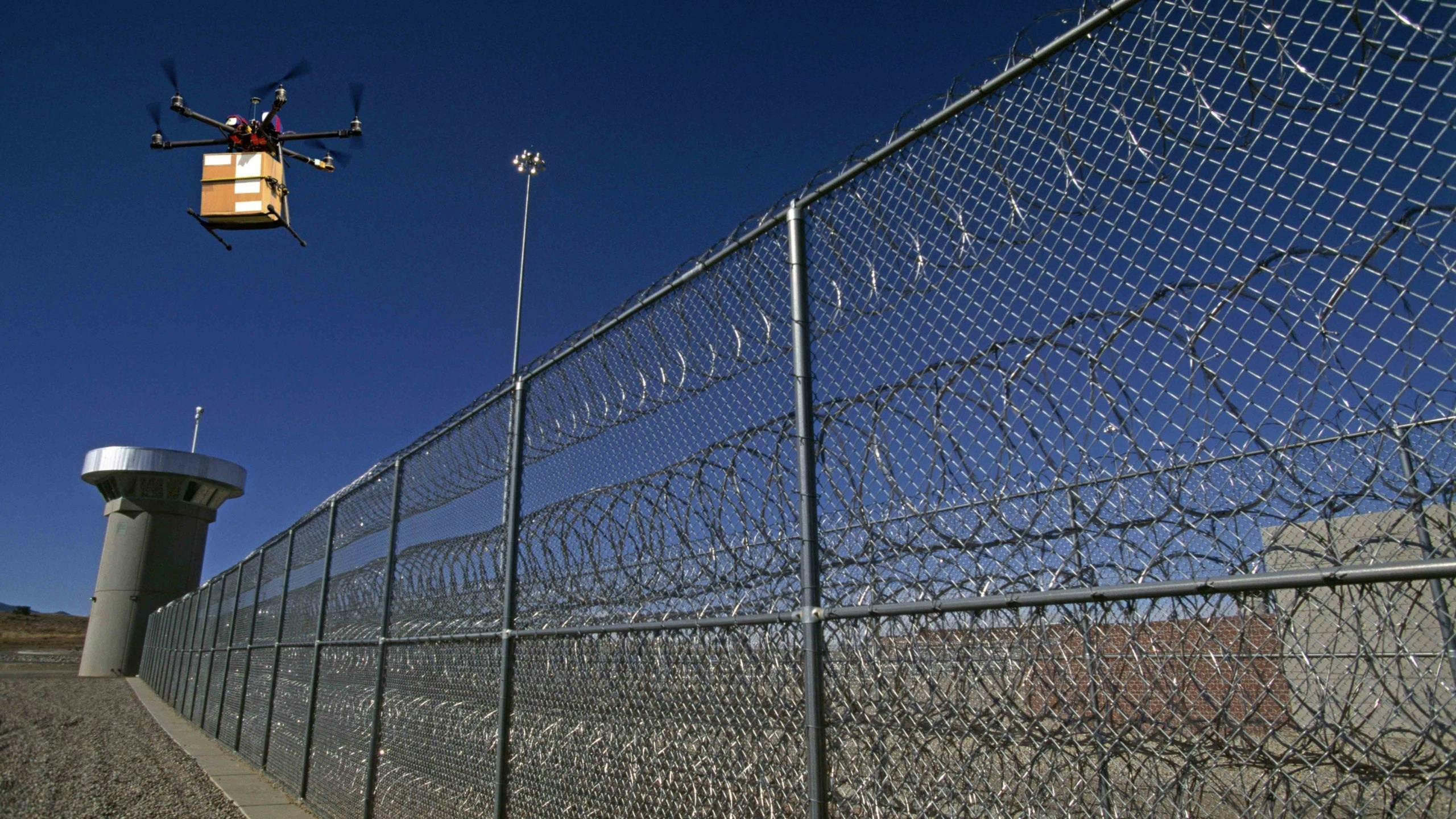Flying drones over or near Wyoming prisons and jails at angles that would allow cameras to peep into them could soon be illegal.
And using drones in an attempt to deliver weapons or contraband, including cell phones, to inmates would be a felony. That’s according to a draft bill passed forward to the Wyoming Legislature on Tuesday by the Legislature’s Joint Judiciary Committee.
First Amendment Concerns?
The measure could run afoul of the First Amendment, particularly as it would relate to news organizations, some committee members said during discussion.
It could get murky trying to rule whether somebody was just innocently flying a drone in the general proximity of a prison, or deliberately using the drone with ill intent, said committee member Rep Karlee Provenza, D-Laramie.
She and others also raised the concern over how it could affect news organizations’ coverage of breaking events, such as a fire at a prison.
However, having drones showing up unannounced during a crisis such as a fire would put prison wardens in an impossible situation, said committee co-chair Sen. Tara Nethercott, R-Cheyenne. In the middle of an emergency without advanced notification about which organizations might send drones, wardens couldn’t determine why the drones were there.
Without going into specifics, the draft bill states wardens could use “reasonable actions” to stop or prevent drones from entering their restricted air space above or around prisons and jails.
A Matter Of Safety
Forbidding drones in correctional air space is a matter of safety, Dan Shannon told the committee. He’s the director of the Wyoming Department of Corrections (WDOC).
Current technology could allow drone operators to get “live feed” surveillance of prisons from remote locations, he said. That has huge implications for nefarious activities, such as delivering contraband or planning possible escape routes.
That puts correctional staff and inmates in danger, Shannon said. Also, drones’ ability to take pictures or videos of visitors or other people entering and leaving prison grounds violates those people’s privacy and threatens their safety.
WDOC is willing to work with news organizations with permission and advanced notice, he said. Typically, it’s been forbidden for journalists to take video or pictures of such things as prison control systems.





